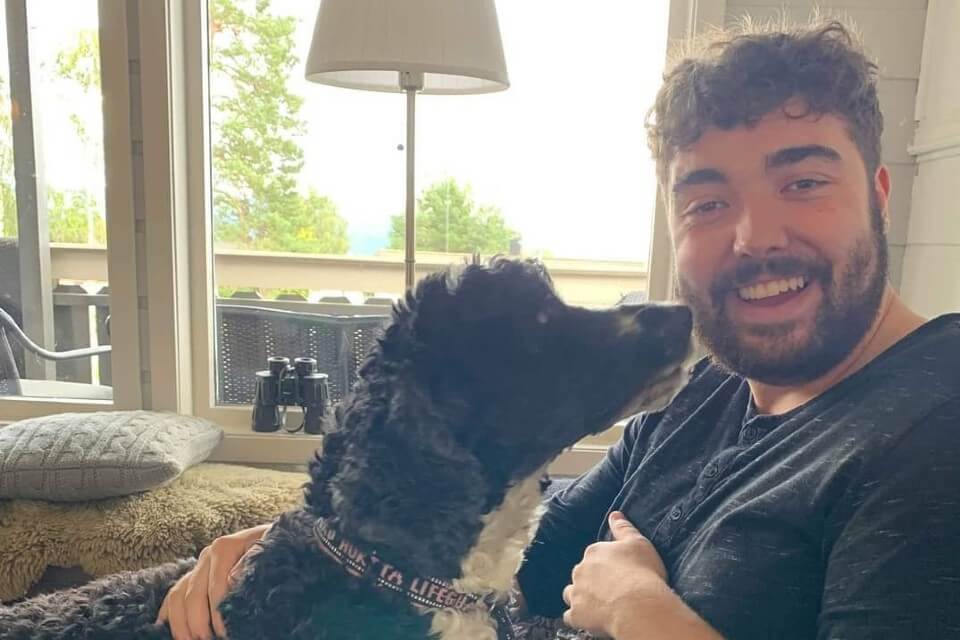Buying your first home is often considered one of the most difficult and stressful things you can do. But, it can also be one of the most rewarding things you can do too. My mortgage is cheaper than I ever paid in rent. I also don’t have to worry about a landlord taking £500 out of my deposit because the skirting board is dusty and I have a cat.
I bought my first home as a 22-year-old medical student, without ever working full time. I attribute this almost entirely to knowing that I wanted to own a home as early as possible, and therefore doing as much research about home ownership as I could years before I could afford a property. So, let’s get into exactly what I did to get to where I am now.
Saving for a deposit
The most challenging part of buying property for most people is building up a deposit. I did this in large part through private tutoring. My living costs were covered by my maintenance loan which allowed me to put most of my income into a Lifetime ISA.
A Lifetime ISA is a tax-free savings account which can be used for buying a home or for retirement. As an incentive to build a deposit, the government give you a 25% bonus on up to £4,000 a year, which means if you can pay in the maximum amount, you will get £1,000 a year for free towards your deposit.
A word of caution though - if you ever need to dip into the money in a Lifetime ISA, you will have to pay back the bonus and an extra 5% to prevent people from withdrawing.
Property value
I also learnt that the value of a property is not set in stone. It is constantly fluctuating based on the conditions in the area, along with the temperament of the seller and you, the buyer.
If the seller is grumpy or there’s a rush of people buying in the area, the price of a property can be a lot higher than expected. But if you do your research, you will know when there is a sale on in the area and when somebody has put their property up at a suspicious price.
While I was building up my deposit, I regularly checked the new properties for sale in the area I wanted to buy in, as this gave me a strong idea of what the right price for a property was and what a good price was.
This is especially important when the time comes to get a mortgage, because once you’ve had an offer accepted on a property, the bank will send out a surveyor to the property.
They will then tell the bank what they think the value is, and if you’ve offered too much, the bank will refuse to lend to you. This may sound harsh, but ultimately it protects both you and the bank, because it means if the worst happened and you had to sell the house soon after buying it, you (and the bank) should be able to get your money back.
Contacting a mortgage broker
Once I had my eye on a few properties, I contacted a mortgage broker (though I should have probably done this before I was thinking of putting offers in). A mortgage broker is an advisor who has relationships with a number of lenders, applies for a mortgage on your behalf and holds your hand throughout the process of buying your home.
In my opinion, they are an incredibly valuable resource. Whilst they can cost a few hundred pounds, they can save you thousands in the long term and, perhaps more importantly, they are a fountain of knowledge and advice throughout the home buying process. We made sure to only talk to brokers who charged a fee after we had used their services. That way we could get a number of mortgage offers (called a Decision In Principle) and use the best offer.
Affordability
The final piece to this mortgage puzzle is ‘affordability’ - a complex assessment of your outgoings and incomings that the bank will perform to work out how much they can loan to you.
As far as income is concerned, I made sure to register as self-employed as soon as I started tutoring to ensure that all of my income would contribute to my mortgage affordability.
Then, I cleared all the debt I had (after checking with my broker that this was the best decision on balance). I had a car payment at a lower interest rate to what I was getting from my savings, so I was paying it off as slowly as possible. But, even though I only had around £1,000 left to pay on the car, the bank assumed that once I had paid it off, I would get another car at the same payment. This meant they deducted my £60 a month car payment for the next 30 years.
Finally, I found a likeminded friend to join me on the mortgage, allowing us to increase our affordability by joining our incomes and deposits together 50:50.
